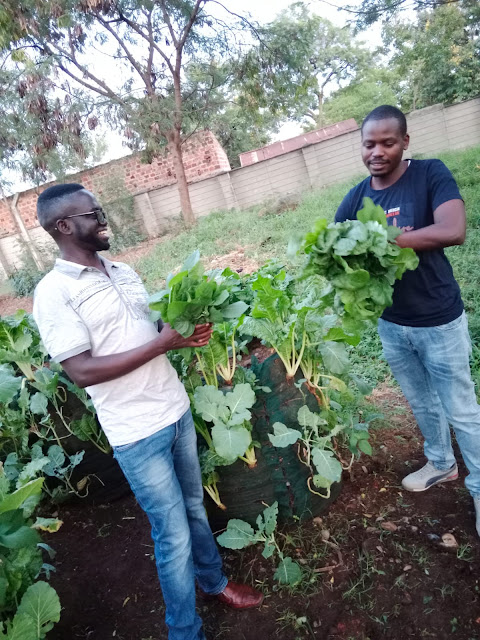One of the most essential things you can do to be healthy is to eat more fresh fruits and vegetables. The nutritional content of veggies is maximum when picked fresh from the garden. You also reduce the chance of consuming veggies laced with toxic chemicals because you know precisely what you're eating. Furthermore, including children in the growing process increases the likelihood that they will try the veggies. One advantage of eating garden veggies is that it lowers your monthly food bill. You can cultivate organic veggies for a fraction of the price you would pay in a shop. Pulling weeds, planting, and digging in the garden are all strenuous activities that can burn up to 400 calories every hour. Gardening is also beneficial.
Women Business Hub is a gender responsive CBO with a Mission to empower women and girls through inclusive entrepreneurship, advocacy, and capacity-building programs that advance gender equality, promote sexual and reproductive health rights, and uphold the right to bodily autonomy. Our vision is a world where every woman and girl enjoy equal opportunity, economic empowerment, and full autonomy over their bodies, lives, and choices—free from discrimination, violence, and systemic barriers.
Subscribe to:
Post Comments (Atom)
At Women Business Hub, We Have Outlived the Saying: Don’t Give a Man a Fish! Teach Them How to Fish.
Ladies and gentlemen, Friends and partners in empowerment, For centuries, we have repeated the proverb: “Don’t give a man a fish; teach h...

-
Community organizations and networks are uniquely positioned to interact with affected communities, respond quickly to community needs and i...
-
AMREF Health Africa developed the Organizational Development and Systems Strengthening (ODSS) curriculum to address the capacity needs of Ci...
-
Women Business Hub is working on strategies to assist low income young farmers and Key Populations in marketing their produce at an afford...

.jpeg)
.jpeg)
.jpeg)

.jpeg)
.jpeg)


.jpeg)





No comments:
Post a Comment